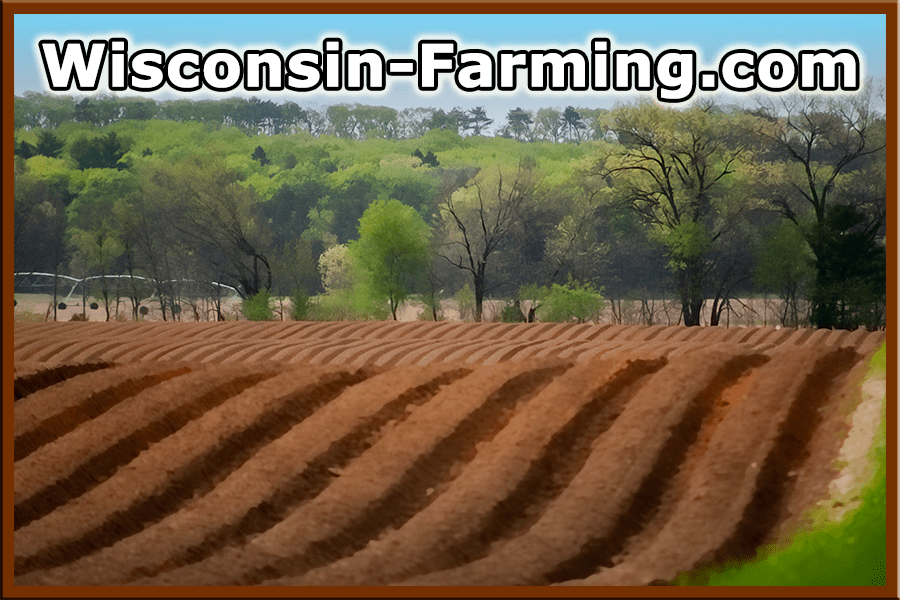Exploring Wisconsin Farming
Explore Wisconsin Farming - Livestock, Cows, Horses, Beef, Chickens, Sheep, Pigs, Ducks, Geese, Cats, Dogs, Goats, Rabbits!
What is the most common type of livestock raised in Wisconsin?

Farming in Wisconsin
Featured Wisconsin Farms for Sale
How does Wisconsin's beef industry compare to other states?
Featured Farm Video
What are the benefits of raising chickens in Wisconsin?
Raising chickens in Wisconsin is a great way to get fresh eggs, provide natural fertilizer and even help with pest control. Here are some of the benefits of raising chickens in Wisconsin:
- Fresh Eggs: Fresh eggs are one of the most obvious benefits of raising chickens in Wisconsin. Not only are they delicious, but they are also a great source of protein and other essential vitamins and minerals. Plus, you can rest assured that your eggs are free of any hormones or antibiotics.
- Natural Fertilizer: Chicken manure is an excellent source of natural fertilizer for your garden. It is rich in nitrogen, phosphorus, and potassium, which are all essential for healthy plant growth. Plus, it is a great way to reduce your carbon footprint and help the environment.
- Pest Control: Chickens are natural predators of many common garden pests, such as slugs, snails, and other insects. This can help keep your garden free of these pesky critters, and can even help reduce the need for chemical pesticides.
- Companionship: Chickens can make great companions. They are social animals and can provide hours of entertainment. Plus, they can even help reduce stress levels and provide a sense of calm.
Raising chickens in Wisconsin can be a great way to get fresh eggs, provide natural fertilizer, and even help with pest control. Plus, they can make great companions and provide hours of entertainment. So, if you’re looking for a way to reduce your carbon footprint, get fresh eggs, and have some fun, consider raising chickens in Wisconsin!
Are there any special regulations for raising goats in Wisconsin?
Raising goats in Wisconsin is a great way to add a unique and fun addition to your farm. Goats are a great source of milk, meat, and even fiber, and they can be a great addition to your family. But before you start raising goats, it's important to know what the regulations are in Wisconsin.
The first thing to know is that Wisconsin requires all goats to be vaccinated against rabies. This is to protect both the goats and the people who come into contact with them. Additionally, all goats must be registered with the Wisconsin Department of Agriculture, Trade and Consumer Protection. This is to ensure that all goats are healthy and that they are not carrying any diseases.
Another important regulation is that all goats must be kept in a secure enclosure. This is to ensure that the goats are safe from predators and that they cannot escape. Additionally, all goats must be provided with adequate food, water, and shelter. This is to ensure that the goats are healthy and that they are not suffering from any kind of neglect.
Finally, it is important to remember that all goats must be kept away from other livestock. This is to ensure that the goats do not spread any diseases to other animals. Additionally, all goats must be kept away from any bodies of water, as this can lead to the spread of disease.
Overall, raising goats in Wisconsin can be a great experience, but it is important to know the regulations. By following the regulations, you can ensure that your goats are healthy and that they are not causing any harm to other animals or people. So, if you're thinking about raising goats in Wisconsin, make sure to do your research and follow the regulations.
What are the best practices for raising pigs in Wisconsin?
- Choose the right breed. Pigs come in many different sizes and temperaments, so it’s important to choose the right breed for your needs. Consider the climate, the size of your farm, and the type of feed you’ll be providing.
- Provide a safe and comfortable environment. Pigs need a clean, dry, and well-ventilated area to live in. Make sure the area is free of sharp objects and other hazards. Provide plenty of straw or other bedding material for the pigs to nest in.
- Provide a balanced diet. Pigs need a balanced diet of grains, proteins, and minerals. Make sure to provide plenty of fresh water and feed the pigs twice a day. Also, provide plenty of fresh fruits and vegetables for the pigs to eat.
- Maintain proper hygiene. Pigs can be prone to diseases, so it’s important to keep their living area clean and free of parasites. Make sure to clean the area regularly and provide the pigs with regular baths.
- Provide plenty of exercise. Pigs need plenty of exercise to stay healthy. Make sure to provide them with plenty of space to roam and play. Also, provide them with toys and activities to keep them entertained.
- Monitor the pigs’ health. Make sure to check the pigs regularly for signs of illness or injury. If you notice any changes in their behavior or health, contact your veterinarian right away.
Discover the Richness of Wisconsin Farming
Wisconsin farming is a way of life for many people in the state. From cows and horses to chickens and ducks, Wisconsin farmers have been providing the state with quality livestock for generations. From beef and pork to eggs and milk, Wisconsin farmers have been providing the state with delicious and nutritious food. Whether you're looking for a pet, a source of income, or just a way to connect with nature, Wisconsin farming has something for everyone. With its rich history and diverse selection of livestock, Wisconsin farming is sure to remain an important part of the state for years to come.


 And then Add to Home Screen.
And then Add to Home Screen.